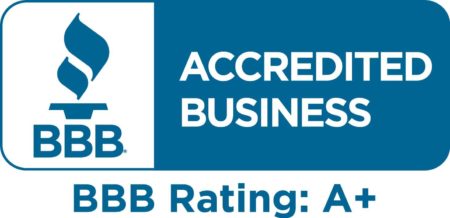We want your loan experience to be positive. The goal is to close your loan quickly, with the best rates and costs and not get surprised along the way.
WHEN APPLYING FOR YOUR MORTGAGE LOAN…
REVEAL YOUR POTENTIAL ROADBLOCKS AT THE START
Tell us about old foreclosures, bk, etc. right at the start. Not including child support or alimony payments in your paperwork is one of the most common pitfalls.
You should also tell your lender if you have deferred student loans or if you’re on an income-driven repayment plan. Although you might pay little or no money on that debt now, lenders want to ensure you can still afford your mortgage payments when those loan payments kick in later.
The following are a few situations you should mention to your lender; Your mother pays your rent, You pay child support, You rent out a residence that you call your vacation home or maybe you plan on quitting your job.
Mistakes can happen by accident, but some applicants leave things out or spin them because they think it will help them get approved for a mortgage. That’s a bad idea, for three reasons. Your lender will probably discover your secret. It’s better to deal with issues up front rather than late in the process
DON’T START PURCHASE IF YOU DO NOT HAVE FUNDS TO CLOSE
If you say your down payment coming from cashing out stocks or other investments, your lender will verify that you own the assets. But it will also need proof that you sold the shares and the money is in your checking account. Once that’s been verified and approved, don’t change where your down payment is coming from and don’t alter the down payment to a lower amount.
DON’T OVERESTIMATE YOUR INCOME
Your federal tax documents will show the real numbers, especially for self-employed borrowers… we have to use the net income on your tax form schedule C or if you own a corporation, we use the corporate taxes and your K1 form.
DONT SWITCH FROM W2 TO SELF-EMPLOYED EARNINGS
Do not change from W2 to self-employed or self-employed to W2 earnings. This causes a new waiting period to use the new earnings.
DISCLOSE ALL PROPERTIES THAT YOU OWN
The bank will check and see you have open mortgages which will change your qualifying ratios.
DISCLOSE ALL REOCCURING DEBTS OUT OF YOUR BANK ACCOUNTS
This would include items not showing on your credit report, such as child support payments.
COOPERATE WITH YOUR LOAN PROCESSOR
Please react to email requests from our Manager, Jason Brookes and our loan processing department. It’s important to cooperate because everyone involved is under a deadline. Loan officers, underwriters, and loan funders all work together to complete your transaction. Delays on your part can gum up the entire system.
Typically, an underwriter receives a package and reviews the application, income, assets and credit documents. There will likely be questions (for instance, “Is this bonus an annual event or a one-time thing?”) and requests for additional documentation like cancelled checks proving on-time payment.
If you don’t touch base, your file goes into limbo. When you do submit the requested items, they go to the underwriter, who reviews them in the order they’re received. That may take several days. If there are follow-up questions or requests, the whole thing starts again.
DON’T WAIT TO TURN YOUR DOCUMENTS IN
If it takes you five days to get back to your lender every time there’s a request, your loan is unlikely to close on time. Do not delay sending in paperwork, this is the major cause of loans running late.
DON’T WAIT TO SIGN ANY EMAILED DOCUMENTS
We will be sending you an estimate early in the process and a disclosure near the end of the transaction. These documents are estimates and we can discuss them in detail. The final costs are actually published by escrow on estimated or final “settlement statement” summary report.
DON’T MOVE MONEY AROUND YOUR BANK ACCOUNTS
This will cause you to have to show bank statements for all your accounts the last 2 months and possibly have to get transaction summaries on all bank accounts since last mailed bank statement.
DOWN PAYMENT INTO ESCROW COMES FROM YOUR ACCOUNT
The underwriter is looking to make sure that all the funds used to close this transaction has been in your own bank accounts for the last 60 days. The lender will ask for you to prove with a bank statement showing you had the funds and the deposit check is cashed from your account.
IF GETTING A GIFT
Do one transfer from the donor to you, same dollar amount as gift (and get the permission form signed and the bank statement showing they had the funds)
AVOID UNUSUAL DEPOSITS
You will need to be able to explain and prove where any outside funds come from that are not your obvious earnings or transfers over the last 60 days. this is done so the bank will know you have not taken any new loans out.
DON’T QUIT YOUR JOB
Banks will check to see you are still working during the last week of the loan transaction. The bank will check during the last week prior to your closing date.
DON’T CHANGE JOBS
Banks focus on the work you have done during your last 2 years of earnings. A new job can be an issue if your new job is different from your current career.
DON’T OPEN UP NEW CREDIT
Do not apply for new loans or buy anything that goes on your credit report. This will change your loan qualifying ratios. Wait until the loan is funded to add any new credit accounts or loan payments.
DON’T BUY THINGS ON YOUR CREDIT CARD
Keep open balances on your debts the same as your recent credit report shows.
DON’T CO-SIGN FOR NEW LOANS
Do not co-sign for any loans, they will show up as a new debt on your credit report.
DON’T LET ANY CREDIT PAYMENTS DUE GET 30 DAY LATE
Do not pay any credit debts 30 days late or they will show as derogatory accounts on your credit report and lower your fico scores.
PAYOFF AND RESOLVE ANY NEW COLLECTION ACCOUNTS
Before they lower your credit score. Negotiate a solution with the company you owe. Get a written commitment from collection company that they will take the late payment off your credit.
KEEP PAYING YOUR CURRENT MORTGAGE
Don’t ever be late, pay your payment at the due date. Even if the refinance allows you to skip your next payment, You normally have the option of paying the due payment now and adjusting your total costs to get credit for the money spent.
DON’T LIST YOUR HOME FOR SALE DURING A REFINANCE
If you are in the process of refinancing your home, do not list it for sale. Lenders do not approve home loans if the underlying collateral (i.e. the home) is “on the market.”
In fact, only a few select banks may lend to you if your home was listed within the last three months. After approval, you are welcome to sell. It is your home, after all.
AVOID SWITCHING MORTGAGE LOAN PROGRAMS
It seems simple enough to be re-approved under a different loan program. However, each loan type comes with a separate set of rules. An FHA loan will be approved differently than a VA loan. A conventional Fannie Mae loan will be underwritten to an altogether separate rule book. Changing loan types mid-stream can add days or weeks to your approval process. You and your lender should work as a team to close your mortgage. Avoiding these mistakes can make that happen.
GRAND AVENUE REALTY & LENDING
One of the fastest growing companies in America





